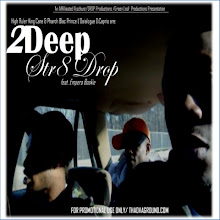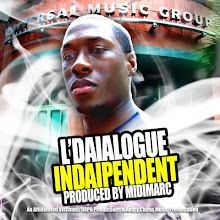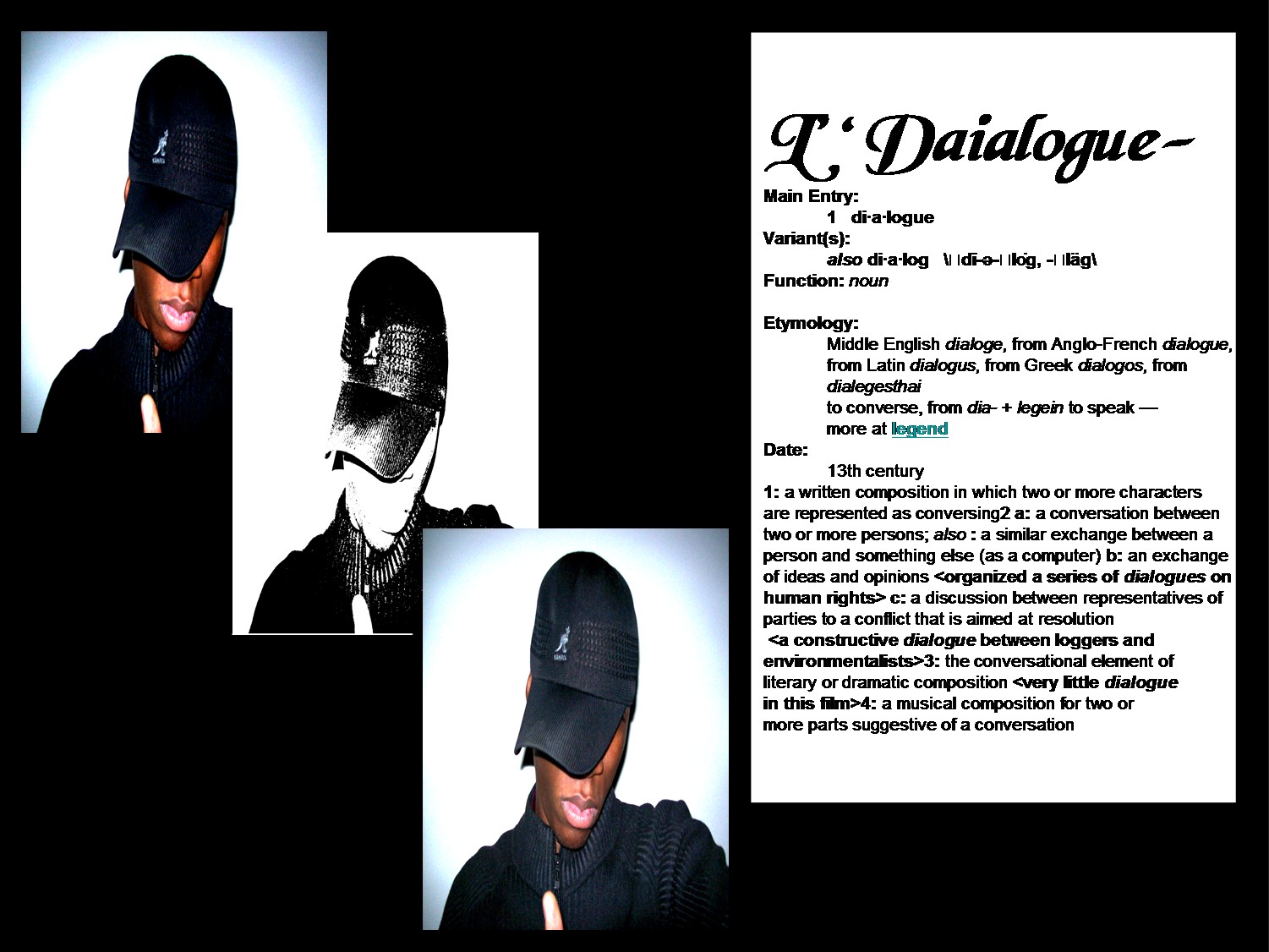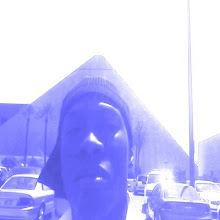
Off of Billboard.com
By Steven J. Horowitz
On Feb. 13, 2009, the mixtape paradigm shifted.
Aligned with Lil Wayne, the then-unsigned Drake, who'd spent the few years before releasing buzzy mixtapes (rapping over hits), unleashed his almost entirely original mixtape "So Far Gone." He did so on his website, October's Very Own, which quickly went into bandwidth overdrive. Reportedly, to date, there have been millions of downloads.
Drake -- whose platinum debut, "Thank Me Later" (Young Money/Cash Money/Universal Republic), bowed atop the Billboard 200 the following year (July 3, 2010) -- had redefined the mixtape model for the digital era. (He released three free songs through October's Very Own as recently as last week, with second album "Take Care" due Oct. 24.) Far from its adolescent iteration, the mixtape-a compilation of music generally distributed outside of label purview-had evolved from a mere display of DJ skills to a promotional tool packed with exclusive freestyles to an actual album-before-the-album, one that could spawn chart-topping singles like "Best I Ever Had," without labels at the helm.
In hip-hop today, free, original mixtapes have become standard. They're offered on websites like DatPiff.com and LiveMixtapes.com, which have erased CD-peddling bootleggers from city street corners. DJs -- like Doo Wop and DJ Clue -- who once shouted over tracks on popular tapes like '95 Live and Springtime Stickup, have been almost entirely weeded from the equation. And where MCs once hijacked beats from others to serve as the sonic quilt for their release, mixtapes have become a creative survival of the fittest. Rappers who dropped freestyle mixtapes can no longer show-and-prove through lyrics alone-original beat selection, artwork and overall artistry determine worthiness.
The original mixtape approach has also crossed genre lines. Artists in the R&B realm have likewise adopted the format, most recently The Weeknd and The-Dream with "Thursday" and "1977," presented as a "free album." Pop singers have even dabbled in mixtape releases. JoJo, whose label disputes have been made public over the past few years, dropped her debut mixtape "Can't Take That Away From Me" in September 2010, while dance diva La Roux teamed with Major Lazer for May 2010's "Lazerproof," a collection of artist-approved original remixes.

"The game favors people that can produce quality music and then turn right around and produce more quality music-which is not a given," Atlantic Records VP of A&R Zvi Edelman says. His signee, Wiz Khalifa, leveraged free, original mixtapes like 2010's "Kush & OJ" and 2011's "Cabin Fever" into the building of a dedicated fan base that helped, along with an intensive touring strategy, make his Atlantic/Rostrum Records debut, "Rolling Papers," one of the few hip-hop debuts to sell more than 500,000 copies (it's now at 570,000, according to Nielsen SoundScan) in 2011.
A batch of newcomers -- such as J. Cole, Big Sean, Dom Kennedy, Mac Miller and Smoke DZA -- has adapted to the consumer demand for free, original rap music. The philosophy is often described this way: As a reward for artists remaining loyal to them (by giving away original music), fans return the favor by buying concert tickets, merchandise and "real" albums from record labels. The result is a give-and-take relationship that keeps rappers in control of their brand and marketing, and iTunes playlists full of free albums disguised as "mixtapes." The payoff is an active fan base, which labels and management hope stimulates retail purchases.
"Active consumers will support [you] and go out and buy your album, buy your concert tickets and your merch. The passive consumer will download it for free, talk about it and that's it," says Al Branch, GM of Hip-Hop Since 1978, which manages Drake, Nicki Minaj and others. "The active consumer is very reactionary, and you can get that consumer to respond quite quickly."
What exactly distinguishes an album from a mixtape? "These days, mixtapes are really albums," Rostrum Records founder/president Benjy Grinberg says. "The difference, is that you don't make any direct money off of it. But the benefits of building the reputation of the artists are pretty amazing."

From many artists' standpoint, the freedom of creating an original mixtape is limitless. Big K.R.I.T., who was scheduled to release studio debut "Live From the Underground" (Def Jam) on Sept. 27 (it's now due early 2012), built his career with free mixtapes including "K.R.I.T. Wuz Here" (2010), "Return of 4eva" and "Last King 2 (God's Machine)," the latter two released this year. All of the self-produced tapes employ samples and audioclips from films-two major hoops to jump through, as far as clearances, with a retail release.
"When you're talking about an album, some samples you can't clear. And it causes you to get more creative," the Meridian, Miss.-born K.R.I.T. (real name: Justin Scott) says, noting also the pleasures of working within the system "Drawing deep in myself and coming up with content and subject matter-and as far as writing lyrics, really taking out more time to piece together a story, making hooks more melodic. It's a growing experience."
Some established acts lean on mixtapes as marketing tools for pending retail albums. Lil Wayne is an example. He dropped freebie "Sorry 4 the Wait" through WeezyThanxYou.com six weeks before "Tha Carter IV" as an apology for the latter's delay. Wale, whose second set "Ambition" (Maybach Music Group/Warner Music Group) is scheduled for release Nov. 1, offered his most recent mixtape, "11-1-11," through Hulkshare.com, a file-sharing site that immediately buckled under the weight of posting the link to his million-plus Twitter followers. The tactic of crashing servers by releasing tapes on low-capacity sites-a growing trend among artists like J. Cole and the Weeknd-appears to only ramp up demand.
"It's like a never-ending commercial," Wale says. He estimates that 1.2 million people downloaded 11-1-11 in the first three days-a feat flaunted in label press releases, and retweeted all over. But he's realistic about the residual effects. "I'm definitely not going to get 1.2 million album sales in the first week. That's just the reality of it," he says. "I just hope that the majority of the people who love the mixtape go out and support 'Ambition.'"
Even on smaller scales, the model can shine. New Orleans' Curren$y released his third studio album, "Pilot Talk" (Roc-a-Fella/DD172/Def Jam) in 2010, avoiding the sample clearance issues of his mixtapes by employing live instrumentation and production from Ski Beatz. The now Warner Bros. Records signee utilized online mediums like Ustream and Twitter to build a relationship with fans and deliver free mixtapes such as 2008's "Fast Times at Ridgemont Fly" and 2009's "How High with Wiz Khalifa," helping the non-mixtape "Pilot Talk" sell 52,000 copies, according to Nielsen SoundScan.
McKenzie Eddy, a singer/songwriter and president of BluRoc Records who handled A&R for Curren$y's album and its sequel ("Pilot Talk II"), says, "Free records and selling records-it's all about having something to drive the building of your brand. Giving away albums is equally as important as selling them."
Some major labels have begun to embrace the format by repackaging the giveaways as retail EPs. Universal and Young Money/Cash Money pared down "So Far Gone" to a seven-track EP with two new cuts. It was released in September 2009 and has sold 608,000 units, according to SoundScan. Last year, Def Jam monetized its first mixtape with Fabolous' "There Is No Competition 2: The Grieving Music EP," an adaptation of its free companion.
Def Jam senior VP of A&R Sha Money XL, says that major labels' adjusted attitude toward mixtapes isn't only rooted in compensatory motives, but also in the emphasizing of talent-to build careers with longevity. "We're doing this because rappers want their artistic abilities to be displayed," he says. As president of G-Unit Records, Sha helped 50 Cent craft his career through steal-your-hit-style mixtapes in the early '00s. And Sha signed Big K.R.I.T. to Def Jam. "You can rap over someone else's beats, but it's not as impactful as giving them a song you created."
The mixtape revolution began as a presentation of turntable skills by such DJs as Lovebug Starski, DJ Hollywood, Brucie B and Kid Capri. By the mid-'90s, it became the battle of the strongest Rolodex, with turntablists like DJ Clue and Funkmaster Flex netting exclusives for their own street and retail releases.
But around the turn of the millennium, artists had begun to assimilate the mixtape model. Instead of offering new tracks and freestyles for DJ-administered mixtapes, prolific groups like G-Unit and Dipset strategized on how they could use the model as a full-length promotional vehicle for studio albums. DJs were elbowed into secondary roles, and became known more for facilitating underground distribution to bootleggers and corner stores.
Flex, a DJ at WQHT (Hot 97) New York and host of MTV's Funk Flex Full Throttle who released four gold-certified retail mixtapes between 1995 and 2000, put his career as a mixtape DJ on ice when he noticed the shift. "The artist started to want better control," says Flex, who has refocused his non-Hot 97 energies on his InFlexWeTrust.com. "Some DJs were only as big as the exclusives they got."
Mixtape culture reached critical mass in January 2007 when DJ Drama, one of the few DJs to persevere with his Gangsta Grillz brand, was arrested along with DJ Don Cannon and 17 others in a police raid on their Aphilliates Music Group headquarters in Atlanta-a part of the RIAA's quest to put an end to mixtape profiteering. "A lot of us, including myself, had to find other avenues," DJ Drama says. "After that raid, it got a little scary and nerve-racking." He has since abandoned mixtapes as a revenue stream, instead releasing them for free in a tastemaker role.
Indeed, for artists who have constructed careers on a mixtape foundation, signing with a major may not always be the end-goal. Acts like Odd Future and Tech N9ne have sidestepped major labels, releasing albums on their own imprints and distributing through companies like RED or Fontana. "You don't have to put out a commercial album to build your fan base," Grinberg says. "You could have an artist who's on a major and an artist who doesn't have a label or a manager-they can both get a mixtape out there and compete. It really levels the playing field."
























.jpg)
.jpg)
.jpg)


No comments:
Post a Comment